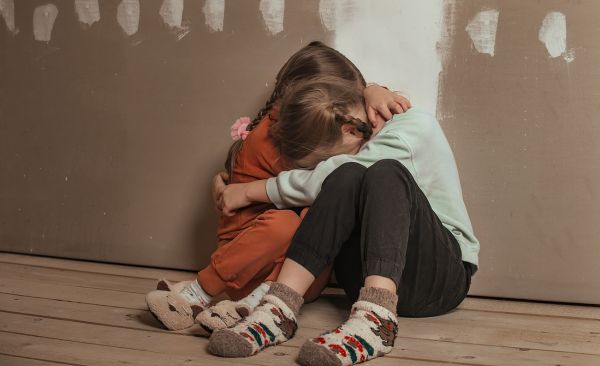Creating a nurturing and joyful family environment is an achievable goal for everyone. The small daily habits and attitudes contribute most to a happy family life. If you’re looking for effective ways to enhance happiness within your family unit, this blog post will guide you through ten practical tips on how to have a happy family. Ensuring your family feels connected, respected, and valued can make all the difference.
Why Is Being Happy Important to a Family?
Happiness within a family isn’t just a nice-to-have; it plays a vital role in creating a healthy, supportive, and loving environment. According to the Better Health Channel, when family members are happy, they are more likely to connect deeply with each other, face challenges together, and grow stronger as a unit. Understanding the importance of happiness can help families prioritize joy and harmony in their daily lives. Let’s explore why being happy is crucial to a family’s well-being.
Builds Stronger Relationships
Happy families are built on strong, trusting relationships. When family members feel happy, they are more likely to spend time together, communicate openly, and support each other. Happiness creates a sense of safety and belonging; everyone feels loved and appreciated. This emotional security helps children grow confident and allows parents to model healthy relationships. One of the key tips for a happy family is to prioritize shared activities that bring joy and laughter, as these experiences help reinforce the bonds between family members. Strong relationships form the foundation for overcoming challenges, making the family more resilient.
Promotes Better Communication
When family members are happy, communication flows more easily. Happiness reduces stress and tension, making it easier for individuals to express their thoughts and feelings without fear of judgment or conflict. In a happy family, people are likelier to listen to each other and respond with empathy and understanding. Good communication is one of the most important tips for a happy family. It fosters openness, allowing parents and children to connect more deeply. Whether discussing daily events or working through conflicts, happiness enables families to communicate more effectively, strengthening their emotional connection.
Reduces Stress and Tension
Family life comes with its share of stress, whether from work, school, or daily responsibilities. However, happy families are better equipped to handle stress because they have a positive outlook and supportive relationships. When family members feel secure and loved, they are more likely to face challenges with optimism and find solutions together. Happiness acts as a buffer against stress, making difficult times more manageable. When parents and children maintain a positive atmosphere at home, stress is less likely to lead to conflicts or emotional distance. A happy family can navigate tough situations without letting stress break down their relationships.
Encourages Emotional Growth
Happiness within a family creates a nurturing environment where emotional growth can thrive. Children who grow up in happy households learn important emotional skills like empathy, kindness, and resilience. These skills help them build healthy relationships outside the family and cope with life’s ups and downs. Parents also benefit from emotional growth in a happy family setting. Focusing on joy and positivity helps parents model healthy emotional habits for their children, creating a stronger emotional foundation for the whole family. This approach nurtures well-being and resilience, shaping a supportive and harmonious home environment. One of the tips for a happy family is to create opportunities for emotional connection, like having meaningful conversations or spending time doing activities that bring joy.
Improves Physical Health
Happiness isn’t just good for mental health but also the body. Studies have shown that happier people tend to have lower stress levels, which can reduce the risk of physical illnesses like heart disease and high blood pressure. A happy family is likelier to engage in healthy behaviors, like eating meals together, exercising, and caring for each other’s well-being. A happy home environment allows families to support each other in maintaining better physical health. When everyone feels loved and appreciated, there’s a natural motivation to care for themselves and one another, fostering overall well-being.
Fosters a Positive Home Environment
A positive and happy atmosphere at home affects everyone’s mood and behavior. When family members are happy, the overall energy in the household becomes more uplifting and welcoming. Children are more likely to feel secure, and parents are more satisfied with their roles. Maintaining a positive environment is one of the crucial tips for a happy family. Simple actions, like expressing gratitude, celebrating small victories, and showing affection, contribute to a home filled with joy and positivity. This environment encourages creativity, reduces conflict, and promotes a sense of calm, helping everyone thrive.
Tips on How to Have a Happy Family
Here are ten tips for a happy family that can help strengthen bonds and ensure everyone feels loved and valued.
Prioritize Quality Time Together
Spending quality time with your family is one of the key ingredients to happiness. Sharing a meal, watching a movie, playing games, and being present with your loved ones builds connection. Make time every day to talk and engage with each other. Small moments, like a family walk or a simple conversation before bedtime, can make a big difference in fostering love and support.
Open and Honest Communication
Clear communication is essential for understanding one another. Encourage each family member to express their feelings and thoughts openly. This creates an environment where everyone feels safe to share their ideas or concerns. A tip for a happy family is holding regular family discussions or check-ins, ensuring everyone’s voice is heard. Practice active listening and empathy to understand each other truly.
Respect Each Other’s Boundaries
Even within a close-knit family, personal space and boundaries are important. Each family member has different needs and comfort levels. Respecting these boundaries helps avoid conflicts and misunderstandings. When children or adults need time alone, it’s important to honor that. This respect promotes trust and reduces tension, creating a more peaceful family environment.
Celebrate Special Moments Together
Celebrating milestones and achievements, no matter how small, fosters happiness and unity. Birthdays, holidays, or even personal achievements at work or school should be celebrated together as a family. This creates lasting memories and a sense of belonging. Celebrating as a family helps everyone feel recognized and appreciated, strengthening emotional bonds.
Share Responsibilities
A happy family works together as a team. Sharing household responsibilities ensures that no one feels overwhelmed or taken for granted. Assign age-appropriate tasks to everyone in the family, from children to adults. When everyone contributes, it lightens the load and promotes a sense of togetherness. Sharing chores teaches children the value of teamwork and responsibility, further supporting tips for a happy family.
Maintain a Positive Environment
Creating a positive atmosphere at home can improve everyone’s mood and overall well-being. Encourage positive reinforcement instead of criticism. Acknowledge each other’s efforts and achievements, and express gratitude regularly. Avoid unnecessary arguments or negativity. When challenges arise, approach them with a problem-solving attitude instead of blame. A positive environment nurtures happy relationships and helps everyone feel more secure and loved.
Keep Traditions Alive
Family traditions give a sense of identity and continuity. Whether it’s weekly family dinners, annual holiday gatherings, or weekend activities, traditions help keep families connected across generations. These customs provide a comforting routine that reinforces family bonds. As children grow, they may carry these traditions into their own families, ensuring lasting happiness and unity.
Practice Forgiveness
No family is perfect, and disagreements are bound to happen. The important thing is how you handle conflicts when they arise. Practicing forgiveness is a critical tip for a happy family. Holding onto grudges or resentments can create lasting tension and hurt. Teach each other to apologize sincerely when mistakes are made and be willing to forgive and move forward. Forgiveness strengthens trust and helps families grow closer after disagreements.
Encourage Individual Growth
Each family member has their dreams, goals, and talents. Encouraging individual growth allows everyone to feel valued and respected. Support each other’s interests and give space for personal development. A tip for a happy family is to strike a balance between family time and personal pursuits. When individuals feel fulfilled and supported, they contribute more positively to the family unit.
Lead with Love
At the core of every happy family is love. Showing love through actions, words, and gestures strengthens relationships and builds trust. Love doesn’t have to be shown in grand ways—it can be as simple as a hug, a kind word, or a small act of kindness. When love is at the center of the family, it becomes easier to navigate challenges and conflicts together. A family built on love provides a solid foundation for happiness and security.
Final Thoughts
In conclusion, tips for a happy family revolve around simple yet profound concepts: communication, quality time, appreciation, traditions, independence, forgiveness, cooperation, shared meals, positive interaction, and joint adventures. Fostering a happy family is about creating a nurturing environment where every member feels valued, understood, and connected.
Implementing these tips helps families enjoy a more joyful and harmonious life together, creating stronger bonds and lasting happiness in their daily interactions. If you’re looking for more personalized guidance on fostering a joyous and connected family life, Relate Counseling is here to assist.
With experience in marriage and family counseling, our compassionate therapists are equipped to help you create meaningful and secure relationships within your family. Explore our services at Relate Counseling, and contact us today to schedule your appointment.
From enhancing communication to resolving conflicts and strengthening bonds, our services are tailored to foster meaningful and secure connections within your restructured family.
Learn more about how we can support you at Relate Counseling. If you have any questions, don’t hesitate to contact us. Let’s work together toward healing and strengthening your family bonds.




